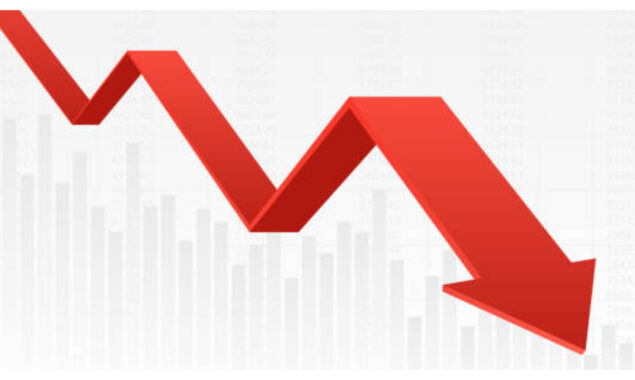
Asian stock markets lost over $2 trillion in four months, Still more expected
After a four-month slump that has wiped out over $ 2 trillion in value, all signs point to more losses for Asian stocks in the future.
China’s Covid curbs, combined with rising US interest rates, are expected to put additional pressure on the MSCI Asia Pacific Index, which has fallen nearly 20% since its high in January. As a result, the index has lagged behind its peers in the United States and Europe by more than three percentage points since February.
The sell-off is a triple whammy for Asia’s investors, who are already dealing with a stronger dollar and a slowing Chinese economy. Bearish calls on US stocks from Morgan Stanley to Goldman Sachs Group Inc. suggest that equities may fall further before reaching a turning point.
“If we see a reversal in China’s Covid Zero policy and a genuine re-opening of the economy, that by itself would provide quite a change in sentiment toward Asian equities,” said Sat Duhra, a portfolio manager at Janus Henderson Investors.
That appears unlikely for the time being. Last week, Beijing doubled down on its Covid strategy, despite mounting pressure to ease restrictions on economic growth. Because of China’s extensive trade and tourism ties with Asia, the lockdowns in major cities such as Shanghai are likely to exacerbate price pressures, though some factories are gradually restarting production.
Companies in Asia have warned of the impact of China’s shutdowns on earnings, including chipmaker SK Hynix Inc., Uniqlo owner Fast Retailing Co., and Tata Motors Ltd. Since a high in March, forward estimates for the MSCI Asia Pacific Index have fallen by about 4%.
“If China lockdowns were to extend throughout the second quarter and beyond, we expect supply chain disruptions would meaningfully start affecting almost all global hardware companies,” according to Ashish Chugh, portfolio manager for global emerging markets equities at Loomis, Sayles & Company, the most direct impact will be felt in Asia.
The CSI 300, China’s stock benchmark, is still in a bear market, which is contributing to the drop in the regional index, as they account for roughly a quarter of the weighting, along with Hong Kong-domiciled names. BlackRock Inc.’s research division, which was “modestly positive” on Chinese stocks in October, downgraded its rating to neutral on Monday.
Meanwhile, there are numerous global headwinds. Traders expect the Federal Reserve’s policy rate to rise by more than 175 basis points this year, sending the dollar higher. This has the potential to increase the cost of borrowing and refinancing for Asian companies.
A further surge in bond yields will also hurt the valuations of high-priced tech shares.
Fund Outflows
According to Bloomberg data, foreign funds have withdrawn a net $40 billion from Asian stocks excluding China this year.
“We are neutral Asia ex-Japan equities,” BlackRock Investment Institute strategists including Jean Boivin and Wei Li wrote in a note. “China’s deteriorating macro outlook is a worry, and policymakers have yet to fully deliver on promises of easing.”
Nonetheless, as commodity prices remain high, the resource-linked markets of Australia, Indonesia, and Malaysia may be the bright spots. Southeast Asian stocks will benefit as the region’s economies reopen their borders to tourists.
Read More News On
Catch all the Business News, Breaking News Event and Latest News Updates on The BOL News
Download The BOL News App to get the Daily News Update & Follow us on Google News.




